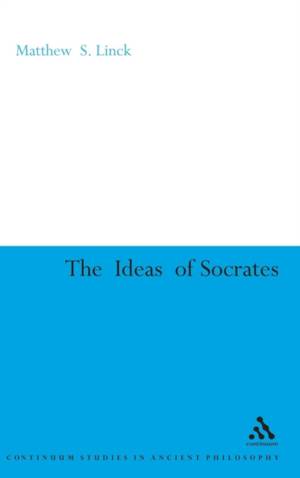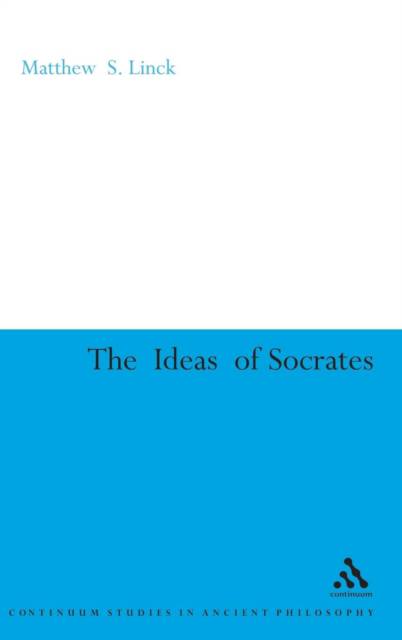
- Afhalen na 1 uur in een winkel met voorraad
- Gratis thuislevering in België vanaf € 30
- Ruim aanbod met 7 miljoen producten
- Afhalen na 1 uur in een winkel met voorraad
- Gratis thuislevering in België vanaf € 30
- Ruim aanbod met 7 miljoen producten
Zoeken
Omschrijving
The Ideas of Socrates offers a unique interpretation of the ideas (forms, eide) in Plato's writings. In this concise and accessible study, Matthew S. Linck makes four major claims. Firstly, the ideas as Socrates discusses them in the Phaedo, Parmenides, and Symposium are shown to be integral to the person of Socrates as presented in Plato's dialogues. Secondly, Linck argues that if we take Plato's dialogues as an integrated set of writings, then we must acknowledge that the mature Socrates is perfectly aware of the difficulties entailed in the positing of ideas. Thirdly, the book shows that Socrates' recourse to the ideas is not simply an epistemological issue but one of self-transformation. And finally Linck examines how Socrates relates to the ideas in two ways, one practical, the other speculative.
Â
As the only group of Plato's narrated dialogues that are not narrated by Socrates, the Phaedo, Parmenides, and Symposium constitute a unique collection. These three dialogues also contain accounts of Socrates as a young man, and all of these accounts explicitly discuss the ideas. The Ideas of Socrates serves as a commentary on the relevant passages of these dialogues and goes on to build up an explicit series of arguments about the ideas that will transform the way in which we approach these key texts.
Â
This important new book will be of interest to anyone involved in the study of Ancient Philosophy.
Specificaties
Betrokkenen
- Auteur(s):
- Uitgeverij:
Inhoud
- Aantal bladzijden:
- 160
- Taal:
- Engels
- Reeks:
- Reeksnummer:
- nr. 12
Eigenschappen
- Productcode (EAN):
- 9780826494511
- Verschijningsdatum:
- 14/03/2007
- Uitvoering:
- Hardcover
- Formaat:
- Ongenaaid / garenloos gebonden
- Afmetingen:
- 168 mm x 238 mm
- Gewicht:
- 902 g

Alleen bij Standaard Boekhandel
+ 678 punten op je klantenkaart van Standaard Boekhandel
Beoordelingen
We publiceren alleen reviews die voldoen aan de voorwaarden voor reviews. Bekijk onze voorwaarden voor reviews.








